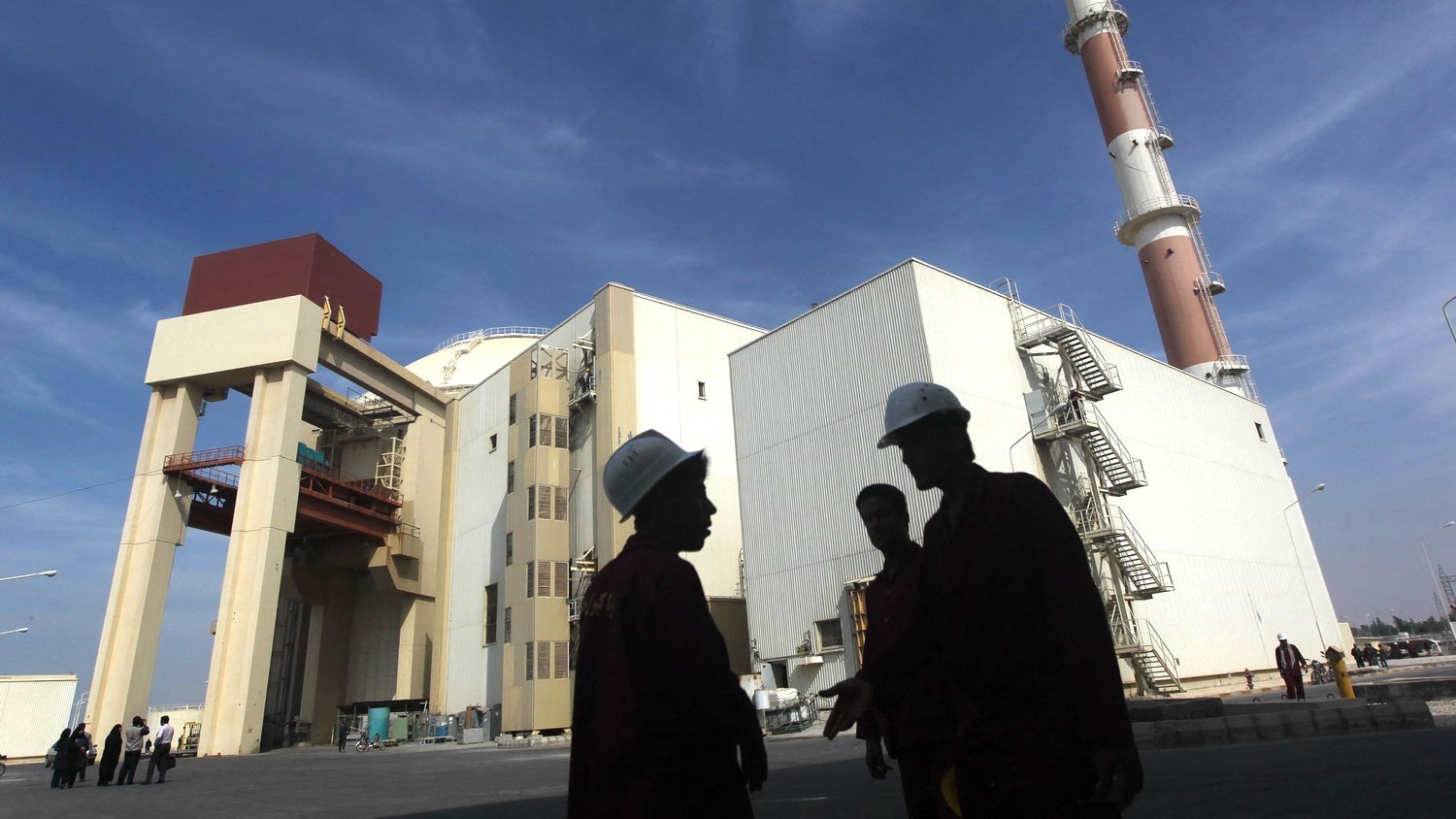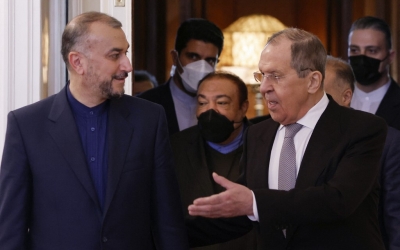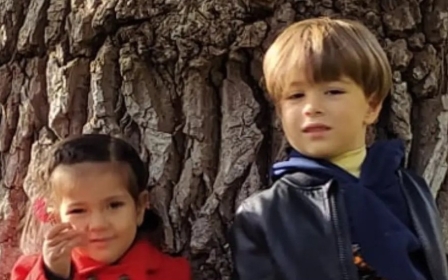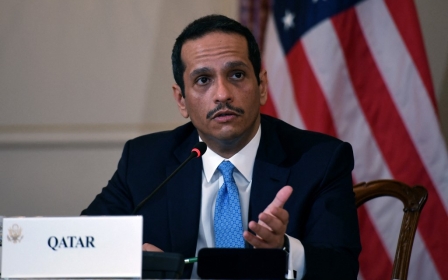Iran nuclear deal back on track after Russia 'caves' on sanctions protections, experts say

Russia has walked back from demands relating to the Iran nuclear deal and accepted narrower protections, clearing the way for the US and the Islamic Republic to continue negotiations in Vienna aimed at reviving the 2015 agreement, experts say.
Earlier this month, Russia was accused of trying to take the nuclear deal hostage as part of its wider battle with the west following its invasion of Ukraine.
Moscow threw a last-minute spanner into plans for an agreement to lift US sanctions on Tehran, saying it needed "a clear answer that the new sanctions will not affect its rights under the nuclear deal".
But on Tuesday, Russian Foreign Minister Sergei Lavrov made remarks which suggested the Kremlin was not standing in the way of the accord.
After a meeting with his Iranian counterpart, Hossein Amir-Abdollahian, Lavrov said Moscow had received "written guarantees" from Washington that US sanctions would not affect its nuclear supply agreements and cooperation with Iran in line with the nuclear deal.
Citing a senior western diplomat, the Wall Street Journal reported that Russia's chief nuclear negotiator informed the EU it would accept narrower guarantees if it meant Moscow could carry out nuclear work with Iran under the 2015 agreement.
Such work includes a uranium swap with Iran, the redesign of the Fordow nuclear facility and the provision of nuclear fuel to Iranian reactors.
Barbara Slavin, the director of the Future of Iran Initiative at the Atlantic Council, told Middle East Eye that "basically, the Russians caved".
"What we've seen is the Russians have climbed down from Lavrov's demand a week or so ago that they had to have a free hand in trading with Iran," Slavin said.
Naysan Rafati, a senior analyst for Iran at the International Crisis Group, told MEE that events over the past few weeks had shown there were still "a lot of twists" as part of the attempts to revive the accord.
"If the Russians have formally gone back to the prior position, which is more specific to nuclear related projects, then it would seem to remove one of the hurdles that has come up," Rafati said.
"It certainly does seem to address one issue that had seriously put a serious question mark on the agreement."
Slavin agreed, saying Lavrov's remarks were "very promising, [if] it means that things can get back on track".
"And so now the question is, do all the negotiators quickly return to Vienna and get it done before the Iranian New Year [March 20]? How long does this drag on?"
Russia's role in JCPOA
With the Russians backpedalling on their demands, Moscow will likely return to its original role under the 2015 nuclear agreement, known officially as the Joint Comprehensive Plan of Action (JCPOA).
This includes being a part of the Joint Commission which will agree on a new framework for the deal. Moscow is also likely to be involved in the more practical sides of the deal, including engagement in civil nuclear cooperation projects with Iran.
'We're at the finish line or we can see the finish line, but we're not [there] yet. We haven't yet crossed it'
- Sanam Vakil, Chatham House
Under the 2015 agreement, Moscow also took 11 tonnes of excess uranium stockpiles from Iran that exceeded its cap of 300 kilograms.
"I think the sense was that this would probably be the case again as part of the current negotiations where Iran is enriching at 60 percent and again has a stockpile well in excess of [the] 300 kilogram cap. So that would also have to be shipped out, presumably to Russia," Rafati said.
However, Russia's trade relations are unlikely to escape the west's wide-ranging sanctions following its invasion of Ukraine, which have essentially cut it off from the global banking system and caused the Ruble to fall by more than 40 percent.
US Secretary of State Antony Blinken said on Wednesday that the sanctions on Moscow could only be removed with an "irreversible" Russian withdrawal from Ukraine.
The State Department told MEE on Tuesday that the US "would of course not sanction Russian participation in nuclear projects'' as a part of the nuclear deal, but added that it "cannot provide assurances beyond that".
The next step in the nuclear negotiations, which Rafati described as being "one step forward, one step back", is to hammer out the remaining areas of disagreement between Washington and Tehran.
Talks between the US and Iran have been taking place indirectly for nearly a year, but a senior US official told the Journal that only "a handful of issues" remained unanswered, mainly on the issue of the scope of sanctions relief Tehran would receive from Washington.
But as the sides edge closer to finalising a deal, some experts have stuck to a line recently used by French negotiator Philippe Errera and Iranian negotiator Ali Bagheri Kani: nothing is agreed until everything is agreed.
"This means that we're at the finish line or we can see the finish line," Sanam Vakil, deputy director of the Chatham House's Middle East North Africa programme, told MEE.
"But we're not [there] yet. We haven't yet crossed it."
Middle East Eye propose une couverture et une analyse indépendantes et incomparables du Moyen-Orient, de l’Afrique du Nord et d’autres régions du monde. Pour en savoir plus sur la reprise de ce contenu et les frais qui s’appliquent, veuillez remplir ce formulaire [en anglais]. Pour en savoir plus sur MEE, cliquez ici [en anglais].





